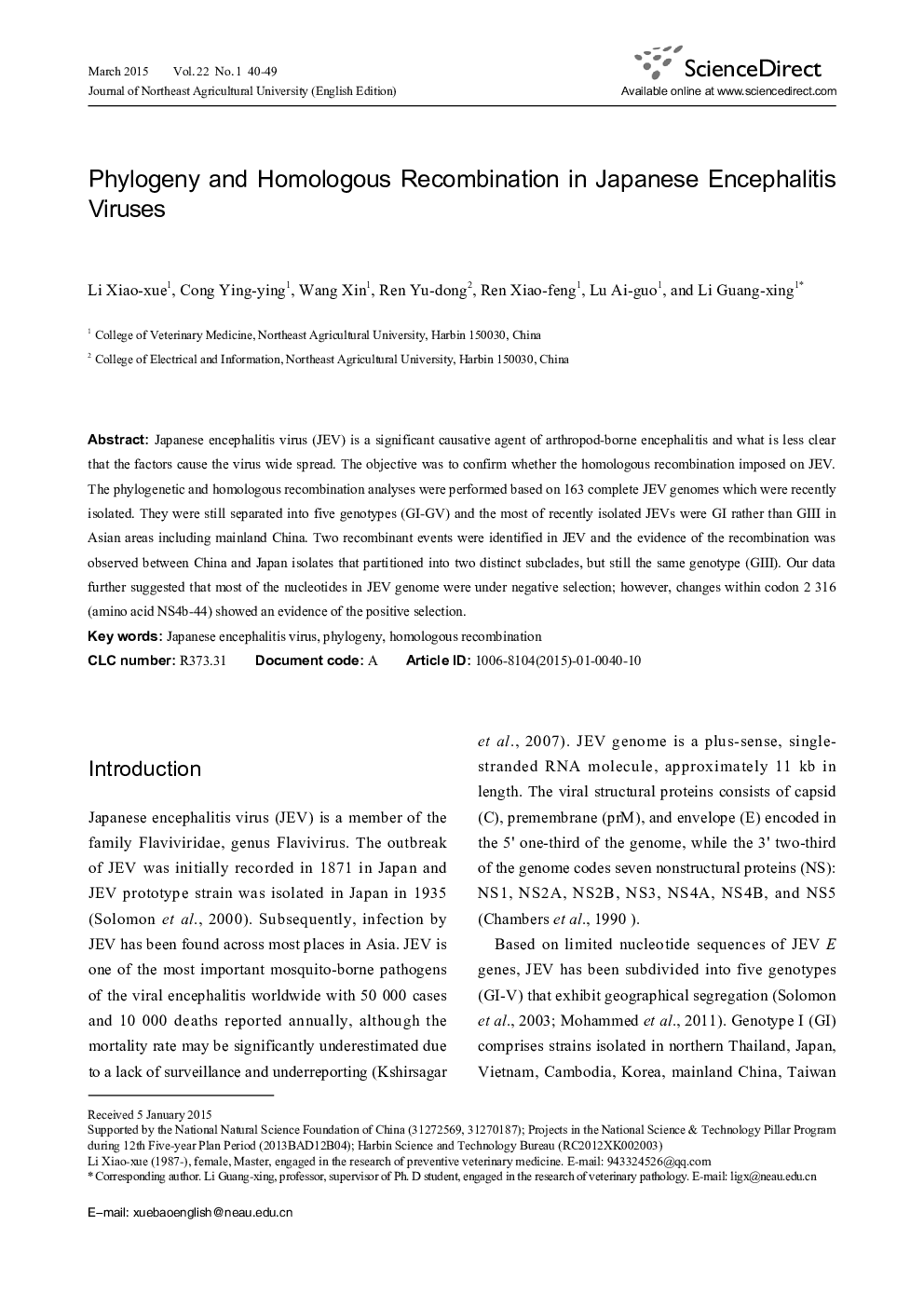| Article ID | Journal | Published Year | Pages | File Type |
|---|---|---|---|---|
| 4495367 | Journal of Northeast Agricultural University (English Edition) | 2015 | 10 Pages |
Japanese encephalitis virus (JEV) is a significant causative agent of arthropod-borne encephalitis and what is less clear that the factors cause the virus wide spread. The objective was to confirm whether the homologous recombination imposed on JEV. The phylogenetic and homologous recombination analyses were performed based on 163 complete JEV genomes which were recently isolated. They were still separated into five genotypes (GI-GV) and the most of recently isolated JEVs were GI rather than GIII in Asian areas including mainland China. Two recombinant events were identified in JEV and the evidence of the recombination was observed between China and Japan isolates that partitioned into two distinct subclades, but still the same genotype (GIII). Our data further suggested that most of the nucleotides in JEV genome were under negative selection; however, changes within codon 2 316 (amino acid NS4b-44) showed an evidence of the positive selection.
